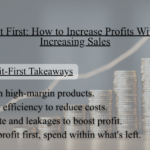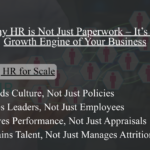
In the modern workplace, the traditional clock-watching management style is rapidly becoming obsolete. As businesses strive for innovation and efficiency, the focus is shifting towards an outcome-based approach. This change not only respects employees’ professionalism but also fosters a more productive and engaged workforce. This article explores the benefits and challenges of outcome-based management and offers practical strategies for implementing this approach.
The Shift from Time-Based to Outcome-Based Management
Historically, many organizations relied on a time-based management approach, where employees were judged based on the hours they spent at work. While this method was straightforward, it often failed to capture the true value of an employee’s contributions. Today, more companies are recognizing that a rigid focus on hours worked does not necessarily equate to productivity. Instead, they are embracing an outcome-based approach, where the emphasis is on what employees achieve rather than how long they work.
Benefits of Outcome-Based Management
- Increased Productivity: Employees can work during their most productive hours, leading to higher-quality results.
- Enhanced Employee Satisfaction: Empowering employees with autonomy fosters a sense of ownership and engagement.
- Attracting Top Talent: Offering flexibility and trust attracts high-performing individuals who thrive in self-directed environments.
- Fostering Innovation: With fewer constraints, employees are more likely to think creatively and propose innovative solutions.
- Improved Work-Life Balance: Employees can better manage personal and professional responsibilities, reducing burnout.
Challenges and Considerations
While outcome-based management has many advantages, it also presents certain challenges:
- Clear Objectives: Organizations must establish clear and measurable objectives to align efforts and evaluate performance effectively.
- Effective Communication: Open and regular communication is vital for transparency and feedback.
- Trust and Accountability: Managers must trust employees to deliver results, while employees must hold themselves accountable for their work.
- Training and Development: Supporting employees through training can facilitate the transition to this new way of working.
Case Study: Google’s Flexible Work Environment
Google is renowned for its innovative work culture, which emphasizes outcomes over hours worked. Employees are encouraged to work flexibly, and the company measures success based on results. This approach has contributed to Google’s reputation as a leader in innovation and employee satisfaction.
Example: Remote Work Success During the Pandemic
During the COVID-19 pandemic, many companies were forced to adopt remote work. Businesses that focused on outcomes rather than clock-watching found that employees remained productive and engaged, even when working from home. This period demonstrated the viability of outcome-based management in various industries.
Practical Tips or Recommendations:
- Set Clear Goals: Define specific, measurable, achievable, relevant, and time-bound (SMART) goals for employees.
- Foster Open Communication: Encourage regular check-ins and feedback to ensure alignment and address challenges.
- Provide Support and Resources: Equip employees with the tools and resources they need to succeed in an outcome-focused environment.
- Cultivate a Culture of Trust: Demonstrate trust in employees’ abilities and judgment, empowering them to take ownership of their work.
- Evaluate and Adapt: Continuously assess the effectiveness of the outcome-based approach and make adjustments as needed.
The transition to outcome-based management reflects the evolving nature of work in today’s digital age. By focusing on results rather than hours, organizations can unlock greater potential in their workforce, drive innovation, and create a more dynamic and satisfying work environment. While challenges exist, the benefits far outweigh the drawbacks, making this approach a valuable strategy for modern businesses.
Are you ready to transform your organization by embracing outcome-based management? Start today by reevaluating your management practices and empowering your team to achieve their best results.
Author Bio:
Rahul Revne is a business consultant and writer specializing in leadership strategies and organizational development. With a passion for innovative management practices, Rahul Revne helps businesses unlock their full potential through employee empowerment and outcome-oriented leadership.
References:
- Buckingham, M., & Goodall, A. (2019). The Feedback Fallacy. Harvard Business Review.
- Grant, A. (2013). Give and Take: A Revolutionary Approach to Success. Viking.
- Peters, T. (1987). Thriving on Chaos: Handbook for a Management Revolution. HarperCollins.












